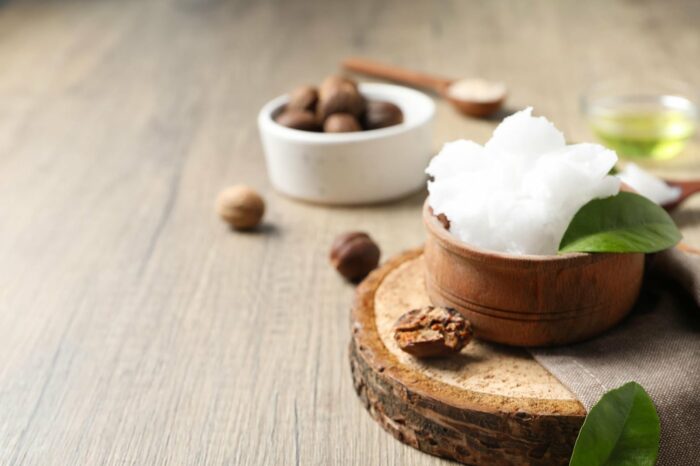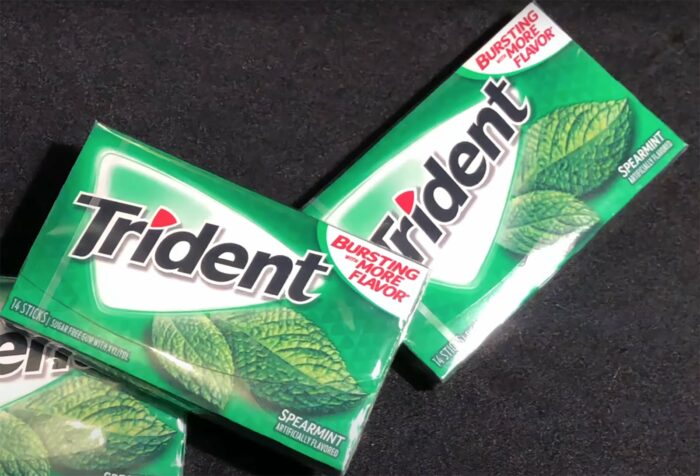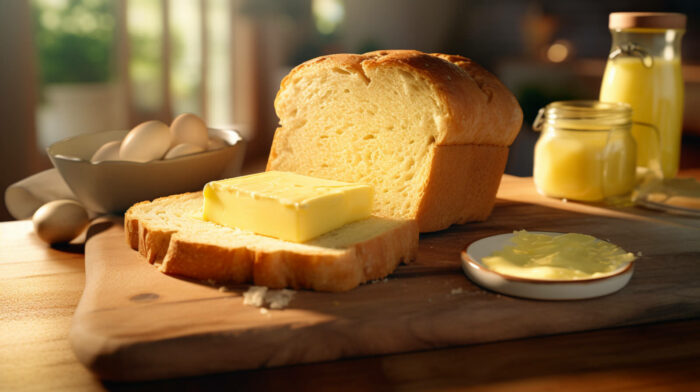Is Salt Vegan? (In-Depth Analysis of Different Salts)
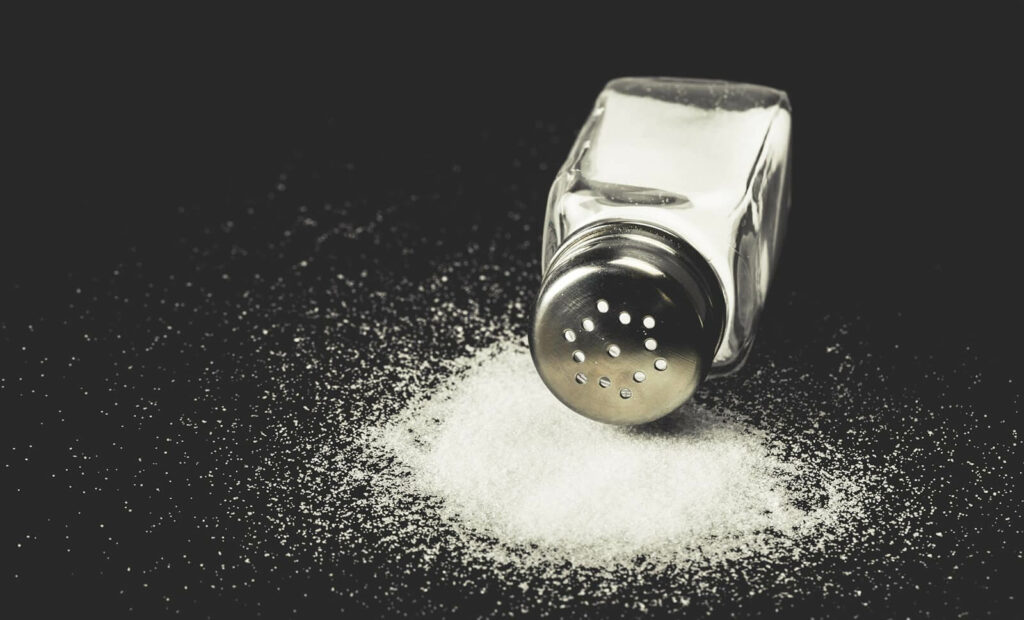
As a vegan, I’ve often wondered if salt is truly vegan. It’s an essential ingredient in our daily lives, but its source and production methods are often unclear.
Is salt vegan? Yes, salt is vegan as it does not come from any animals or animal source. Depending on the brand, as long as it is not processed or modified using anything derived from an animal.
In this article, we’ll explore the different types of salt and go in-depth about their vegan status. We’ll dive into iodized salt, table salt, sea salt, and kosher salt, uncovering the truth about their origins and nutritional content.
Let’s dive in and answer the question, is salt vegan?
What is Salt?
Salt is a chemical compound composed primarily of sodium chloride (NaCI). It’s a common ingredient in many foods and is essential for proper bodily functions. Sodium and chloride are the main components of salt, and they are not derived from animals. Therefore, salt is considered vegan-friendly.
However, some concerns arise regarding the refining process of regular table salt, which may involve the use of bone char. As an alternative, vegans can opt for sea salt or other types of refined salt that don’t use bone char.
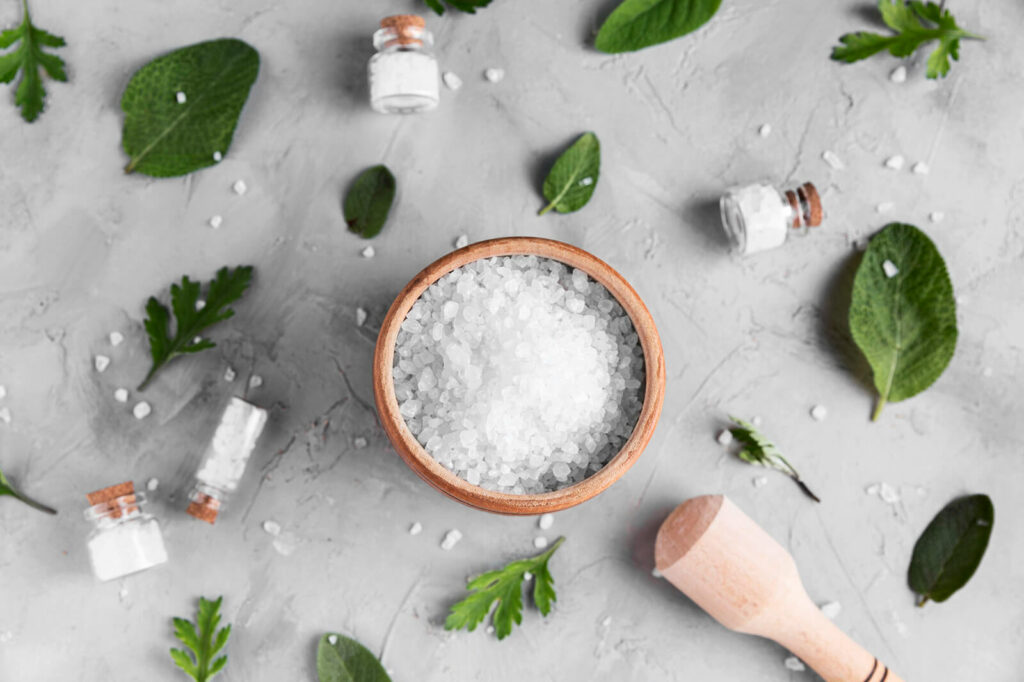
Different Types of Salt
Let’s explore the different types of salt that are commonly available.
These include table salt (also known as iodized salt), sea salt, kosher salt, Himalayan pink salt, and Celtic sea salt.
Each type has its own unique characteristics, flavors, and culinary uses.
Understanding the differences between these salts can help us make informed choices when it comes to our vegan diet and overall health. Also, having too much salt can be harmful.
Table Salt (Iodized Salt)
While discussing the vegan status of salt, it’s important to delve into the subtopic of ‘Table Salt (Iodized Salt) (Different Types of Salt)’.
Table salt, also known as iodized salt, is a processed form of salt that primarily consists of sodium chloride. It may contain additives and undergo purification to remove impurities.
Table salt is vegan as it doesn’t contain animal-derived ingredients.
Table salt is widely available and commonly used in various culinary applications.
Sea Salt
Discussing the vegan status of salt, it’s important to address the topic of sea salt, a type of salt derived from the evaporation of seawater.
Sea salt is vegan as it’s obtained from a natural source and doesn’t involve the exploitation or harm of animals. It contains essential minerals like sodium, potassium, calcium, and magnesium, providing small amounts of these minerals necessary for the body’s proper functioning.
Vegans can use sea salt as a seasoning without ethical concerns.
Kosher Salt
One common type of salt that should be addressed in the discussion of whether salt is vegan is kosher salt.
Kosher salt is a coarse grain salt commonly used in professional kitchens. It rarely contains additives and its larger crystals contribute to a saltier taste.
Kosher salt is versatile and suitable for seasoning and cooking purposes. According to the Mayo Clinic, like other types of salt, kosher salt is primarily composed of sodium chloride, which dissociates into sodium ions and chloride ions when dissolved in a solution.
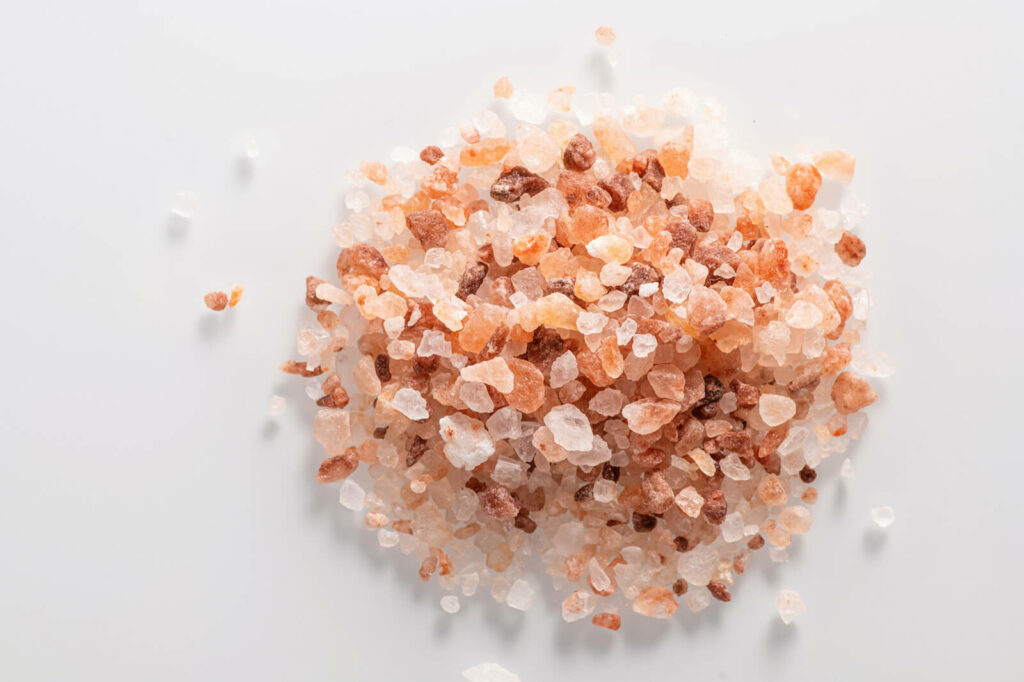
Himalayan Pink Salt
When exploring different types of salt, it’s important to consider the vegan status of Himalayan Pink Salt.
Himalayan Pink Salt is a type of salt that’s mined from the Khewra Salt Mine in Pakistan. It gets its pink color from the presence of trace minerals like iron oxide.
Himalayan Pink Salt is vegan as it doesn’t contain any animal-derived ingredients.
It can be used as a seasoning for vegetables and other dishes.
Celtic Sea Salt
Now let’s delve into Celtic Sea Salt, another type of salt, and its vegan status.
1) Celtic Sea Salt is harvested from the ocean and retains minerals like potassium and magnesium.
2) It’s considered vegan as it doesn’t involve animal exploitation.
3) Celtic Sea Salt may have health benefits, such as supporting electrolyte balance and potentially lowering the risk of high blood pressure.
It can be used as a vegan-friendly seasoning option.
Fleur de Sel
Moving on to the next type of salt, let’s explore Fleur de Sel, which falls under the category of different types of salt.
Fleur de Sel is a premium sea salt known for its delicate flavor and unique texture. It’s harvested from the top layer of salt evaporation ponds in France and Portugal.
Fleur de Sel is often used as a finishing salt in gourmet recipes to add a touch of elegance and enhance the flavors of various dishes.
Rock Salt
Rock salt is a type of salt that’s commonly used for de-icing roads and sidewalks during winter months. It’s typically in the form of large, coarse crystals. The crystals are spread over icy surfaces to help melt the ice and provide traction. Rock salt is often white or off-white in color and has a gritty texture. It’s an effective and affordable solution for preventing accidents caused by icy conditions.
Black Salt (Kala Namak)
Black Salt, also known as Kala Namak, is another type of salt that’s often discussed in the context of veganism and different varieties of salt. It’s a highly regarded ingredient in Indian cuisine and is known for its distinctive sulfurous taste.
Despite its name, Black Salt is actually pinkish-gray in color. It’s commonly used as a seasoning in dishes like chaat, chutneys, and vegan egg substitutes, as it provides an eggy flavor.
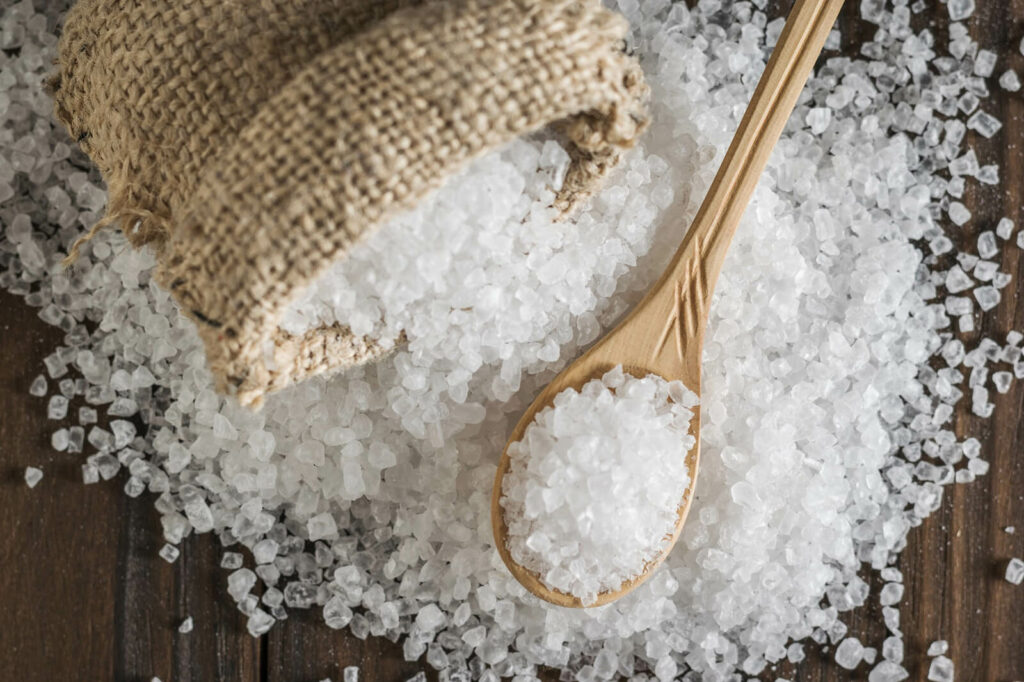
Is Salt Vegan?
Let’s get back to the main question. Is salt vegan?
Salt is vegan and vegan-friendly. Here are three reasons why:
-
- Salt is a mineral and not derived from animals, making it suitable for vegan consumption.
-
- Salt production doesn’t involve the exploitation or harm of animals.
-
- Sea salt, a type of salt derived from seawater, is generally considered vegan as it doesn’t contain any animal-derived ingredients.
Is Table Salt Vegan
Table salt is a vegan-friendly seasoning commonly used in cooking and food preservation. It’s composed primarily of sodium chloride and is typically mined and purified to remove other trace minerals. Table salt doesn’t contain animal ingredients and is a vegan-friendly alternative to certain flavored salts.
Vegans can consume table salt without concerns as it’s a mineral and not derived from animals. It’s widely available and widely used in culinary applications.
Is Sea Salt Vegan
Sea salt, derived from the evaporation of seawater, is a vegan-friendly seasoning. It’s obtained from a natural source and doesn’t involve the exploitation or harm of animals. Here are three reasons why sea salt is considered vegan:
1) It doesn’t contain any animal-derived ingredients.
2) It retains trace minerals like magnesium, calcium, and potassium.
3) It can be used as a seasoning without ethical concerns for vegans.
Is Himalayan Pink Salt Vegan
Now let’s delve into the question of whether Himalayan Pink Salt is vegan.
Himalayan Pink Salt is a type of salt that’s mined from the Khewra Salt Mine in Pakistan. It gets its distinctive pink color from trace minerals like iron oxide.
Like other types of salt, Himalayan Pink Salt is composed primarily of sodium chloride and doesn’t contain any animal-derived ingredients. Therefore, it’s considered vegan-friendly and can be used as a seasoning without ethical concerns.
Is Kosher Salt Vegan
Continuing our exploration of salt’s vegan status, let’s now turn our attention to the question: Is Kosher Salt vegan?
Kosher Salt is a coarse grain salt commonly used in professional kitchens. It’s typically free of additives and rarely contains any animal-derived ingredients.
Kosher Salt’s larger crystals contribute to a saltier taste, making it versatile for seasoning and cooking.
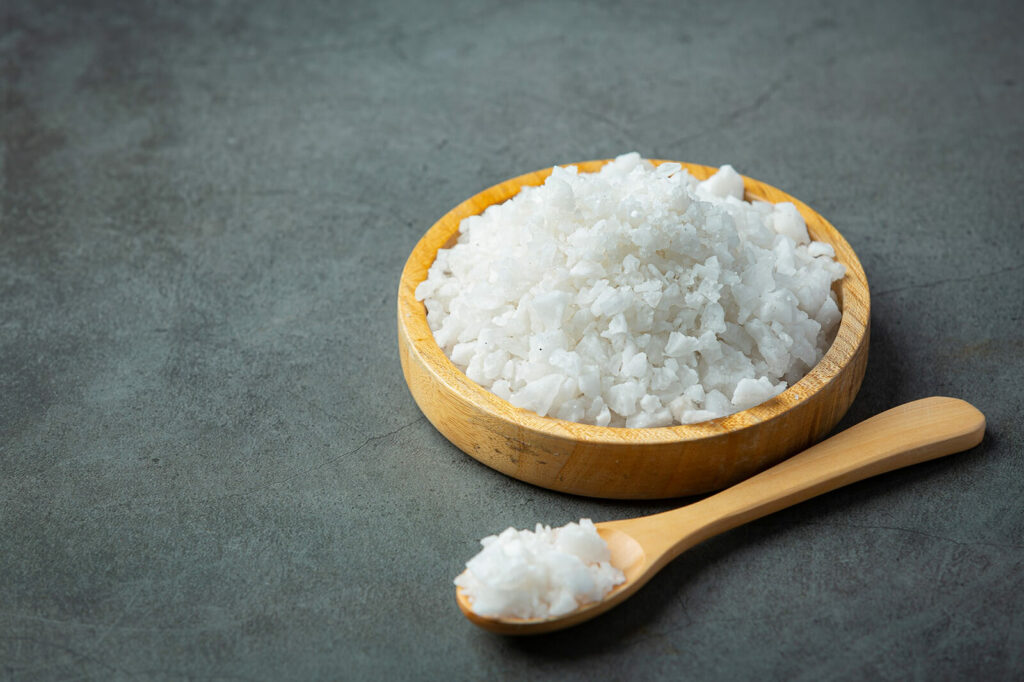
Are Salt Substitutes Like Potassium Chloride Vegan?
Salt substitutes like potassium chloride are derived from minerals and don’t involve the exploitation or harm of animals. They’re vegan-friendly alternatives to sodium chloride, the primary component of table salt.
Potassium chloride is commonly used as a salt substitute for individuals who need to reduce their sodium intake. It provides a similar taste to salt and can be used in various culinary applications.
Show sources ⌄
Salt and sodium. (2023, June 13). The Nutrition Source. https://www.hsph.harvard.edu/nutritionsource/salt-and-sodium/
Agócs R, Sugár D, Szabó AJ. Is too much salt harmful? Yes. Pediatr Nephrol. 2020 Sep;35(9):1777-1785. doi: 10.1007/s00467-019-04387-4. Epub 2019 Nov 28. PMID: 31781959; PMCID: PMC7384997.
